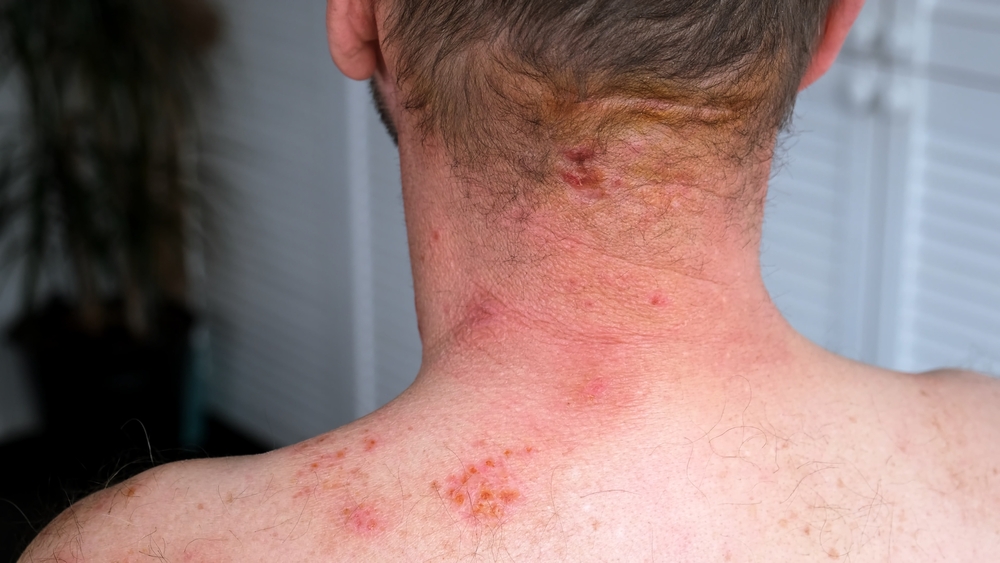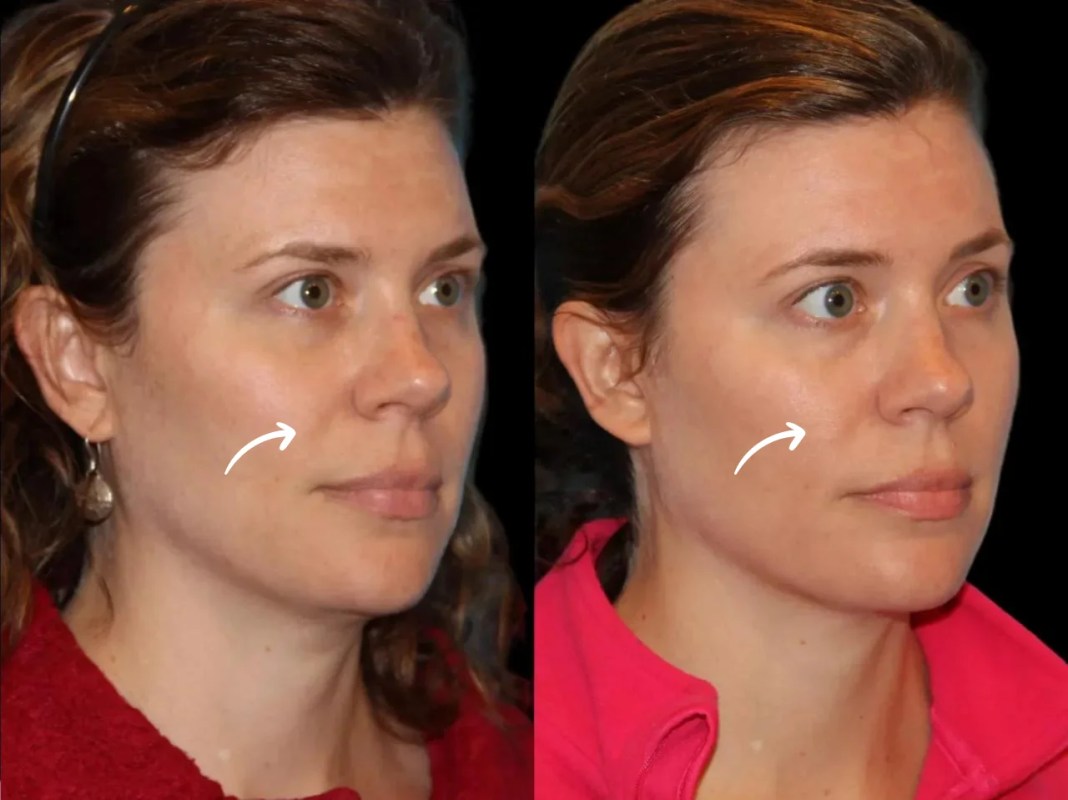Eczema is often dry, itchy, and frustrating. But what if one day, your regular flare looks worse? It starts to hurt. You feel tired or get a fever. Could it be something more than just eczema?
Well, here’s the thing. Sometimes, eczema can open the door to a more serious issue—a viral skin infection called eczema herpeticum. It spreads fast and can become dangerous if ignored. The good news? If you know what to look for and act early, you can treat it and prevent serious trouble.
In this blog, we’ll explain how eczema turns into a viral infection, what signs to watch for, who’s at risk, and how to protect your skin. If you’ve noticed any symptoms of eczema herpeticum, or you care for someone with eczema, keep reading.
What Exactly Is Eczema Herpeticum?
Eczema herpeticum is a viral skin infection caused by the herpes simplex virus. It usually happens when someone with eczema gets exposed to this virus. The virus enters the skin through cracks, cuts, or open eczema spots.
Moreover, this condition spreads fast. It can lead to pain, blisters, fever, and in some cases, serious health issues. Doctors consider it an emergency. It doesn’t mean the person is weak—it just means the skin’s barrier is already damaged.
Therefore, it’s very important to understand this infection and how it starts. That knowledge can help prevent future flare-ups from turning into something more serious.
How Does Eczema Become Infected with a Virus?
Eczema makes the skin dry and cracked. These open areas allow bacteria and viruses to enter. The herpes virus is common. You may know it from cold sores. But when it enters eczema-damaged skin, it can cause a serious outbreak.
Additionally, this virus can spread through direct contact. Touching someone’s cold sore or sharing towels can pass it on. The virus can also reactivate in your body if you’ve had it before.
Resultantly, people with eczema have to be extra careful. If the skin is broken, the chance of infection increases. Even mild contact can cause trouble.
What Are the Early Signs You Should Never Ignore?
This is where things often go wrong. Many people mistake the first signs of eczema herpeticum for a bad flare. However, the infection has some clear symptoms that you should learn to spot.
Here are signs to watch for:
- Clusters of small, fluid-filled blisters that appear quickly
- Skin that burns or stings instead of just itching
- Sudden worsening of your eczema, especially with pain
- Swollen lymph nodes or mild fever
- Fatigue or a general sick feeling
Furthermore, the blisters might ooze or bleed. They can spread across the body fast. Unlike regular eczema, these spots feel more painful than itchy.
Therefore, if you notice even one of these symptoms, contact a doctor right away. Time matters. The earlier you get treatment, the easier it is to stop it.
Who Is at Higher Risk for Eczema Herpeticum?
Anyone with eczema can get this viral infection. But some people are more likely to face this issue due to health or lifestyle factors.
Those at higher risk include:
- Babies and children with active eczema
- Adults who get frequent cold sores
- People with weak immune systems
- Those who recently had skin procedures or injuries
Additionally, stress or a cold can increase the risk by weakening the immune response. Resultantly, even a small cold sore in another person can pose a risk to someone with eczema.
Knowing your risk can help you take early action. You can avoid common triggers and follow better hygiene routines.
How Do Doctors Diagnose Eczema Herpeticum?
Diagnosis is often quick if the doctor knows what to look for. First, they will check your skin. The appearance of blisters or open sores gives a clear clue. But they usually confirm it with a swab test.
This test checks the fluid in the blisters for the herpes virus. In some cases, doctors may also run blood tests to check your overall health. Moreover, it’s important not to treat this at home without guidance.
People often try using over-the-counter creams. Unfortunately, these won’t help. In fact, they might delay proper care and make the infection worse.
Therefore, it’s best to see a specialist as soon as new symptoms appear. Don’t wait for it to “go away on its own.”
Treatment: What Happens If You Catch It Early?
If caught early, eczema herpeticum can be treated well. Most people respond to antiviral medications like acyclovir or valacyclovir. These medicines slow the virus and help your skin recover faster.
Additionally, doctors may suggest rest, fluids, and cold compresses to ease discomfort. You might need to stop using some eczema creams until the infection clears.
In rare cases, the infection spreads too fast or gets into the eyes. Then, you may need to stay in the hospital. There, you’ll get stronger medication and round-the-clock care.
Therefore, early treatment is the best way to avoid complications. Don’t wait and hope it gets better. Your skin needs fast support when infected.
How to Prevent Eczema from Turning into a Viral Infection
The best way to avoid eczema herpeticum is to prevent the virus from entering broken skin. That starts with good skincare and smart habits.
Here are a few things you can do:
- Keep your eczema under control with prescribed treatments
- Avoid contact with people who have active cold sores
- Wash your hands often and avoid touching your face
- Don’t share towels, razors, or skincare items
- Keep your nails short to avoid scratching your skin
Moreover, if you know someone has a herpes infection, stay cautious. Even a simple hug or kiss can spread the virus if your skin is vulnerable.
Additionally, ask your doctor if preventive antiviral treatment is a good option for you. This may help if you get frequent infections.
When Should You See a Specialist?
Sometimes, a regular doctor may not be enough. If your symptoms grow worse even after starting medication, see a dermatologist. They understand both eczema and viral infections.
Moreover, if you notice signs near your eyes, don’t wait. Infections in this area can lead to eye damage. Go to a specialist right away.
Additionally, if you have frequent cold sores and eczema, talk to your doctor. They might suggest long-term solutions or preventive steps to keep infections from returning.
It’s better to act early than risk long-term damage to your skin or health.
Conclusion:
Eczema is tough, but eczema herpeticum is a different challenge. It’s more than a rash. It’s a fast-moving viral infection that needs medical care. You now know the signs to watch for, from blisters and pain to fever and tiredness. You’ve also learned who is most at risk, what treatment involves, and how you can stop it before it starts. Treating eczema early, avoiding exposure, and staying alert can make a huge difference. If you or your child has eczema and symptoms change suddenly, don’t guess—get help. Schedule a consultation for Atopic Dermatitis so you can manage eczema properly and avoid serious infections like eczema herpeticum.



